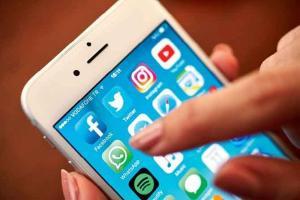Dr. Preyas Vaidya discusses the impact of cellphone usage on sleep and shares 8 tips on how to sleep better

photo used for representational purposes only.
Cell phones have become integral to function for nearly everyone. While it has brought a lot of tasks to our fingertips, cell phones also have a host of disadvantages. Cellphones emit intermittent electromagnetic radiation (also referred to as Radio Frequency energy) and bright screen light, both these aspects have tremendous impact triggered from prolonged use.
ADVERTISEMENT
Increased screen time also affects sleep and psychosocial behaviour across age groups. Usage of cellphones has exponentially increased over time, so much so that we usually take it to bed, to the play areas, and even to the toilet.
Being exposed to the bright light emitting from cell phones has been shown to reduce levels of Melatonin, which plays a pivotal role in maintaining your natural sleep-wake cycle. Melatonin is a hormone which is secreted by the Pineal Gland to give cues to the biological clock and brain, that it's time to sleep. Studies have shown that excessive use of cell phones leads to reduced duration and quality of sleep; it also increases daytime fatigue. It increases personal stress by creating an urge to reply to the text messages immediately, and respond.
A study done by He et al. reported that avoiding cellphone use 30 minutes prior to sleep, increases the duration and quality of sleep, it also improves work memory. An NCBI study on Japanese adolescents found that long duration of mobile phone use was associated with Insomnia, particularly in students using mobile phones for 5 hours or more each day.
Additionally, long hours spent on social networking sites and online chatting apps using mobile phones, was related to depression, particularly in students who spent over two hours on these sites. It concluded that appropriate use of mobile phones should be propagated in order to prevent sleep disturbances and the impairment of mental health among adolescents.
Reducing mobile phone usage at night before sleeping is a great habit to cultivate. The literature on the dangers of cellphone use and electromagnetic radiation on the brain is still in an emerging phase, however the advantages of avoiding phone use before sleeping and excessive use during day are very much evident.
Here's how you can better your sleep patterns:
Reduce blue light exposure in the evening; restrict gadget use by 30 minutes to one hour before bed time
Do not consume caffeine late in the day
Cut out alcohol
Curb irregular daytime naps
Exercise regularly for 30 minutes at least, but not before bed time
Dinner should be consumed 1-1.5 hours before bed time
Take a relaxing bath or shower before bed
Consistently maintain a sleep and wake time
Catch up on all the latest Crime, National, International and Hatke news here. Also download the new mid-day Android and iOS apps to get latest updates.
Mid-Day is now on Telegram. Click here to join our channel (@middayinfomedialtd) and stay updated with the latest news
This story has been sourced from a third party syndicated feed, agencies. Mid-day accepts no responsibility or liability for its dependability, trustworthiness, reliability and data of the text. Mid-day management/mid-day.com reserves the sole right to alter, delete or remove (without notice) the content in its absolute discretion for any reason whatsoever
 Subscribe today by clicking the link and stay updated with the latest news!" Click here!
Subscribe today by clicking the link and stay updated with the latest news!" Click here!







